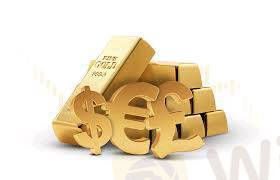
2025-02-05 06:54
In der IndustriePost-COVID Economic Environment:
#firstdealofthenewyearFateema
Post-COVID Economic Environment: Assessing the Impact on Inflation
The COVID-19 pandemic has significantly disrupted the global economy, leading to a sharp contraction in economic activity and a surge in government spending to provide relief. As economies gradually recover from the pandemic's initial shock, concerns have arisen regarding the potential inflationary implications of a post-COVID economy. Several factors could influence inflation in the aftermath of the pandemic:
Unprecedented Fiscal and Monetary Stimulus: Governments worldwide have implemented massive fiscal stimulus packages to support households and businesses during the pandemic. Additionally, central banks have adopted accommodative monetary policies, including ultra-low interest rates and quantitative easing. These measures could lead to increased money supply and inflationary pressures in the long term.
Supply Chain Disruptions and Bottlenecks: The pandemic has caused widespread disruptions to global supply chains, leading to shortages and higher production costs in various industries. These supply-side factors could contribute to cost-push inflation as businesses pass on increased costs to consumers.
Pent-up Demand and Consumer Spending: As economies reopen and consumers unleash their pent-up demand, increased spending could fuel inflation.
This phenomenon, known as "revenge spending," could be particularly pronounced in sectors that were severely impacted by the pandemic, such as tourism and hospitality.
Labor Market Dynamics: Labor shortages and wage pressures could also contribute to inflationary pressures in a post-COVID economy. Factors such as changing demographics, skill mismatches, and reduced labor force participation may exert upward pressure on wages, leading to higher production costs and consumer prices.
While these factors could lead to inflationary pressures in a post-COVID economy, it is essential to note that other forces, such as technological advancements and global competition, may counterbalance these effects. Investors should carefully monitor economic indicators and policy developments to gauge the inflation outlook and adapt their portfolio strategies accordingly, including reassessing the role of gold as an inflation hedge.
Gefällt 0
FX2369241724
Händler
Aktueller Inhalt
In der Industrie
Event-A comment a day,Keep rewards worthy up to$27
In der Industrie
Nigeria Event Giveaway-Win₦5000 Mobilephone Credit
In der Industrie
Nigeria Event Giveaway-Win ₦2500 MobilePhoneCredit
In der Industrie
South Africa Event-Come&Win 240ZAR Phone Credit
In der Industrie
Nigeria Event-Discuss Forex&Win2500NGN PhoneCredit
In der Industrie
[Nigeria Event]Discuss&win 2500 Naira Phone Credit
Kategorie

Plattform

Ausstellung

IB

Rekrutierung

EA

In der Industrie

Markt

Index
Post-COVID Economic Environment:
 Pakistan | 2025-02-05 06:54
Pakistan | 2025-02-05 06:54#firstdealofthenewyearFateema
Post-COVID Economic Environment: Assessing the Impact on Inflation
The COVID-19 pandemic has significantly disrupted the global economy, leading to a sharp contraction in economic activity and a surge in government spending to provide relief. As economies gradually recover from the pandemic's initial shock, concerns have arisen regarding the potential inflationary implications of a post-COVID economy. Several factors could influence inflation in the aftermath of the pandemic:
Unprecedented Fiscal and Monetary Stimulus: Governments worldwide have implemented massive fiscal stimulus packages to support households and businesses during the pandemic. Additionally, central banks have adopted accommodative monetary policies, including ultra-low interest rates and quantitative easing. These measures could lead to increased money supply and inflationary pressures in the long term.
Supply Chain Disruptions and Bottlenecks: The pandemic has caused widespread disruptions to global supply chains, leading to shortages and higher production costs in various industries. These supply-side factors could contribute to cost-push inflation as businesses pass on increased costs to consumers.
Pent-up Demand and Consumer Spending: As economies reopen and consumers unleash their pent-up demand, increased spending could fuel inflation.
This phenomenon, known as "revenge spending," could be particularly pronounced in sectors that were severely impacted by the pandemic, such as tourism and hospitality.
Labor Market Dynamics: Labor shortages and wage pressures could also contribute to inflationary pressures in a post-COVID economy. Factors such as changing demographics, skill mismatches, and reduced labor force participation may exert upward pressure on wages, leading to higher production costs and consumer prices.
While these factors could lead to inflationary pressures in a post-COVID economy, it is essential to note that other forces, such as technological advancements and global competition, may counterbalance these effects. Investors should carefully monitor economic indicators and policy developments to gauge the inflation outlook and adapt their portfolio strategies accordingly, including reassessing the role of gold as an inflation hedge.
Gefällt 0
Ich möchte auch kommentieren
Einreichen
0Kommentare

Es gibt noch keinen Kommentar. Mach den ersten

Einreichen
Es gibt noch keinen Kommentar. Mach den ersten